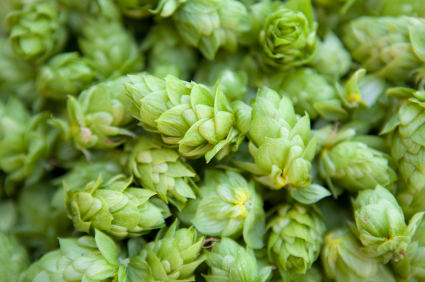
This week I examine a group of US hops from the Pacific Northwest. These American hops form the heart of the US Craft Beer revolution and are widely used in American Pale Ale, and the wide array of India Pale Ales (IPAs) that now dominate Craft Beer production in the US.
The Pacific Northwest Hops Group
This group of hops includes many of the varieties at the core of the US craft beer revolution. Varieties include Cascade, Centennial, Antanum, Falconer’s Flight, Chinook, Columbus, Tomahawk, Zeus, Zythos, Amarillo, Mosaic, Rakau, Simcoe, and Lemondrop. This list continues to grow as new varieties are introduced.
Hops grown in the US Pacific Northwest region account for 96% of US hop production or almost 40% of hop production worldwide. Popular growing regions include the Willamette valley in Oregon and Yakima valley in Washington state. Washington, Idaho and Oregon grow most of the hops in the US.
US hops along with those grown in New Zealand and Australia (which are of US heritage) are desirable because they have more thiols than European hops. They also have unique aromas and flavors as described below. These unique characters have to do with the fact that these hops are derived from hops native to North America.
Pacific Northwest Hop Flavors and Aromas
Pacific hops have significant piney and citrusy notes. The piney notes come largely from high levels of Myrcene, an aroma oil in the hops. Citrus and fruity notes come from high levels of other oils such as Linalool and Geraniol. Pacific hops can also have significant herbal notes. The combination of piney, citrus, fruity and herbal aromas all contribute to the unique flavor of Pacific NW hops.
As I mentioned above, these hops are closely tied to the craft beer and IPA revolution, so much so that we can often tie specific hop varieties to specific well known craft beers. For example, Centennial is used in Bell’s Two Hearted IPA, Simcoe is used in Pliny the Elder from Russian River along with CTZ which is short for the Columbus, Tomahawk and Zeus varieties. CTZ are often used interchangeably because they are quite similar in character. The classic Cascade is used in many of the traditional American Pale Ales.
Many fruity IPAs and hazy/New England IPAs make broad use of Pacific NW hops. They use a combination of extremely high levels of dry hops along with some hopping during active fermentation to enhance the fruity aromas in the finished beer.
Beer Styles for Pacific NW Hops
Pacific NW hops are used in a wide variety of American beers. In fact many of the early craft beers were simply English and European beer styles that were “Americanized” by using US hops and cleaner American yeast. The classic example is the American Pale Ale which is based on an English pale ale but uses Pacific NW hops and American Ale yeast, but dozens of other styles such as American Porters, Stouts, IPAs, Browns, etc… were made using a similar substitution.
As the Craft beer revolution matured, distinct American beer styles emerged. As the IPA revolution took over US craft brewing, Pacific NW hops became even more central to these new beer styles. Dark IPAs, Double IPAs, Triple IPAs, Hazy IPAs, New England IPAs and dozens more were all built to highlight the aroma and flavors of Pacific NW hops.
Therefore when we discuss beer styles associated with these hops they are used in the full spectrum of American craft beer styles, but have also been applied to versions of many traditional English and Continental styles including English ales, Pilsners, German lagers, Belgian beers, Pilsners and many others. While a Pilsner made with Pacific NW hops will not taste the same as one made with a traditional European hops like Saaz, the Craft Pilsner is still treasured for its own unique flavor and taste.
I hope you enjoyed this week’s article on Pacific NW hops. Please subscribe for regular weekly delivery, and don’t hesitate to retweet, link, like or mention any of my articles on social media.